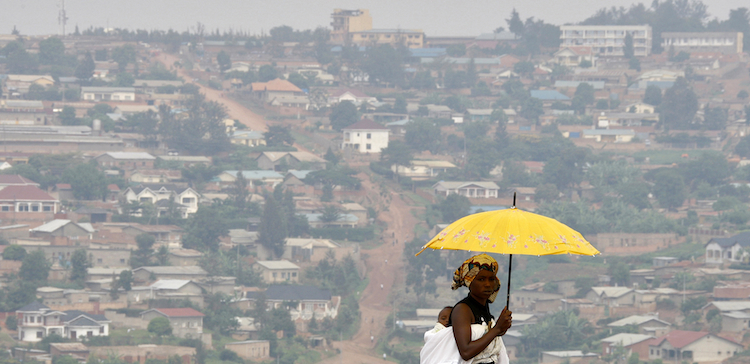Hundreds of lorries trundle through the Rwanda-Tanzania border every hour, damaging Rwanda’s narrow hilly roads. A $13.5-billion (R136-billion) railway project linking the Kenyan port of Mombasa to Kigali, the Rwandan capital, cannot come soon enough for Silas Lwakabamba, Rwanda’s minister of infrastructure.
“The trucks carry too much load, they end up spoiling the road,” he said. “Rail will be faster and can carry more. Maintenance of rail will be much easier.”

The 2 935km line is one of several big infrastructure projects on the continent, reflecting renewed global interest among policymakers after years of focusing on health and education. Besides the Mombasa-Kigali rail link, a seven-year initiative to connect Niger and Ivory Coast is to begin next year as part of efforts to improve rail infrastructure in west Africa.
The railway would link Niamey, the capital of landlocked Niger, with the Ivorian commercial hub of Abidjan, via the capital of Burkina Faso, Ouagadougou, after the extension of mining activities in west Africa.
Dams are also back in fashion. Ethiopia is pressing ahead with its Grand Renaissance dam to the consternation of Egypt, which fears that the project will curb its water supply. In the Democratic Republic of the Congo, work is scheduled to start on Inga III, a $20-billion project.
“Infrastructure is critical for development,” said Lwakabamba. “For the transport sector, we need roads, rail and air, they are all very critical for economic development. And we can’t do anything without energy.”
Rwanda is also involved in the Rusumo falls hydroelectric project to increase power supply of electricity to the national grids of Burundi, Rwanda, and Tanzania, a project backed by the International Development Association, the World Bank’s soft loan arm, and the African Development Bank.
Africa accounts for just 3% of global trade and African countries trade 10% of their goods with each other, compared with 65% between European countries. Landlocked countries are hit particularly hard by poor infrastructure, paying up to 84% more to export their goods than a coastal country. Improving regional markets in Africa would have a significant impact on economic development and poverty reduction.
Huge infrastructure needs
The continent’s infrastructure needs are huge, but financing levels are only half the estimated $93-billion needed annually between now and 2015 to sustain 7% growth rates. Infrastructure is the key issue around plans for a development bank by Brazil, Russia, India, China and South Africa – known as the Brics.
The Mombasa-Kigali link is getting attention at the highest level. Leaders from Rwanda, Tanzania and Uganda have been meeting regularly on the project and plan to discuss financing next month in Kigali. Funding has been secured from China for the $3.7-billion Mombasa-Nairobi section, a distance of 500km, and construction is due to begin in November.
The 200km Rwanda section will cost $1.5-billion and Rwanda is still lining up financing. The line will be used to carry coffee, tea and other agricultural products and minerals out of Rwanda and machinery into the country. The railway will be designed for freight speeds of 80kph but will be open for other passenger travel too.
The Mombasa-Kampala-Kigali railway project entails a 1 184km rail from Mombasa through Nairobi to Malaba and branching to Kisumu (Kenya); a 1 400km rail from Malaba to Kampala, Uganda and linking to four Ugandan towns before connecting to the main line to Rwanda at Mirima Hills; a 201km rail from Mirima Hills to Kigali and an extra 150km rail to other towns in Rwanda.
The existing railway between Mombasa and Kampala dates to the colonial era, and has a small gauge. The new line will have a standard gauge, which is wider, and therefore faster and capable of carrying heavier loads. Rwanda will build its section from scratch as there is no existing line.
The project is unlikely to receive support from UK taxpayers as the Department for International Development has withdrawn £21-million (R343-million) in general budget support – direct aid to the Rwandan government – shifting it to sector support, focusing on health and education. The decision was taken after allegations that Rwanda was supporting M23 rebels in the east of the Democratic Republic of the Congo.
“We do respect decision of the UK government,” said Lwakabamba. “We obviously prefer budget support as it allows us a degree of flexibility on priorities. The UK concentrates more on education and social areas.”
Mark Tran for the Guardian
